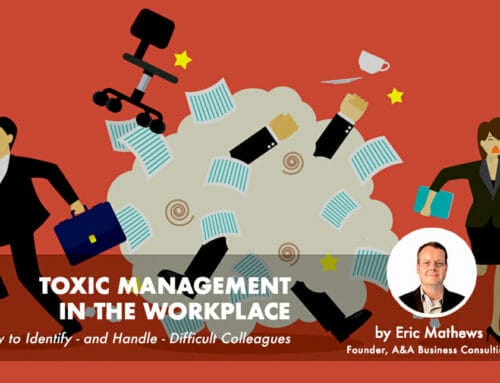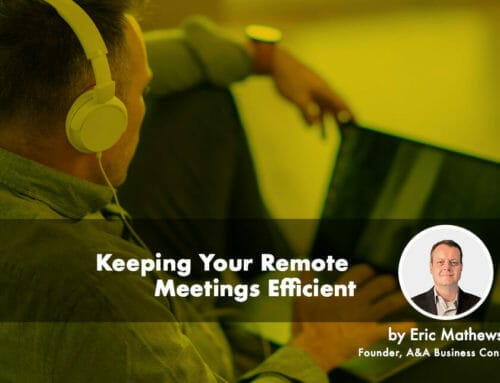Have you ever taken the time to study great business leaders?
In the business world, we revere people like Steve Jobs or Bill Gates for leading their organizations to monolithic success. I can’t imagine someone thinking of them as anything other than the most competent of their kind. These are brilliant men, and their legacies will stand the test of time because of how they led.
If you’re in Leadership, chances are pretty high that somewhere along the way someone also believed you to be a competent leader. Someone believed that you have the potential to do great things and could help take your organization to new heights.
So, with that said, I have a simple question for you:
Are you ever afraid that you don’t really know what you’re doing?
Perhaps doubts flood your mind : How well do I know my industry? Do I know the ins and outs of my industry better than my peers?
How about your own organization? How well do you know the systems and strategies that are in place to make your company profitable and successful? Did you design them?
If you’re anything like most leaders, you’ll answer questions like these with hesitation.
Even world-shaping folks like Jobs, Gates, and Starbucks CEO Howard Schultz admit to similar doubts. Shultz puts it this way: “Very few people, whether you’ve been in that job before or not, get into the (CEO) seat and believe today that they are now qualified to be the CEO. They’re not going to tell you that, but it’s true.”
You probably feel like a fraud at least some of the time.
But guess what? Most of us do. Psychologists have a name for this phenomenon. It’s called “Imposter Syndrome.”
See, it turns out that most leaders have at some point believed themselves to be “faking it.” This irrational belief also suggests that we are the only person in the world expected to have all the answers, to all the problems, all of the time.
But would you ever apply that same logic to someone else?
Consider a head coach who trades for the right player or assistant coach – at the right time, leading to the team’s success. That’s a great coach, right? And, what’s more, it’s their expertise that gave them the insight to do it. Most would conclude they were a great coach, even though they had to reach outside their existing organization to accomplish it. Why? At the end of the day, their job isn’t just to keep players – it’s to win. They need to achieve their goal, capture the imagination of their team, and cast vision for a brighter future. That’s the job.
Now, I am going to go out on a limb and assume that because of your role, title, and experience, you, too, are a more than competent leader. In all likelihood, you’re in your position because you are capable of leading a team towards a common goal. Somebody, somewhere, believed you could steward the cause.
But have you ever experienced the fear I’m describing? I know I have from time to time. I’ve already established that many CEOs and leaders feel like a fake some of the time. Yet, they push past it and lead their organizations on to success. How can you do the same? How can you prevent this fear from clouding your judgment?
In my years of working with businesses, the most competent leaders seem to overcome this problem by doing three simple things:
1. Give yourself permission to succeed without pretending.
You may as well admit it – you don’t have the answers all the time. I’ve got good news for you: It isn’t your job to pretend to have all the answers, it’s your job to see that the problems at hand get solved.
In my work, I often come across leaders wrestling with the idea that hiring a consultant reveals some inadequacy in their leadership. It doesn’t. This is “Imposter Syndrome” at work, and it’s normal. Trapped in the clutches of “Imposter Syndrome,” leaders think to themselves that finding help to resolve the challenges they face disqualifies their own expertise and authority.
But it doesn’t, not at all. You know what does? Not solving the problem, or stretching your team too thin, only to end up with an even bigger mess. This mistake prevents too many good companies from becoming great.
You, as a leader, and your company, are going to be very good at specific things. That’s how you got where you are. You don’t have to have all the answers on your own, and a competent Leader knows this and leans into it to accomplish the goals in front of them.
2. Become A Learning Leader
Steve Jobs once said: “It doesn’t make sense to hire smart people and tell them what to do; we hire smart people so they can tell us what to do.” A competent leader surrounds themselves with smart, proven people and works with them to do great things.
In other words, a good leader learns for life. Finding the right partners to help you solve the challenges you face could prove your willingness to lean on and learn from other people’s experience. A proven consultant may well be the sort of “smart person” that can help you pick up the latest in business and organizational best practices, giving you the edge.
Our past clients will often point to our continued long-term relationships as a significant benefit. At A&A, we’ll continue coaching and working with our clients long after they’ve seen their return on investment and the engagement is complete, to ensure that solutions stick and that they continue to grow.
Be like Steve. Hire smart people and learn from them.
3. Use all the assets available to you to accomplish your goal.
I’ve not come across a business that doesn’t want higher profits, higher productivity, and a more engaged workforce. Not once.
So if you knew that right now you could make a decision that would guarantee an increase in productivity and profitability, and that you’d be freed to lead in a way that allows you to bring your company to its fullest potential, would you? Of course you would.
People typically attribute organizational success and failure alike to its’ leaders. Why would you be any different? I would think that you’d want to do anything that will help you overcome your challenges.
Now, I can only assume you’ve hired smart, capable people. But they have jobs in your organization – that’s why you hired them. Their perspective will be helpful but limited by their function in your business. In today’s shifting Gig Economy, it is perfectly reasonable to think that you would benefit from outside perspective.
If hiring a consultant brings the best out of your company and local staff and a year from now your company is growing, do you really think you will be seen as inadequate or incompetent? Of course not. You’d be praised for your foresight and tactical ability.
Fearless Leadership.
Leading complex organizations can be a challenge, but its one that you’re probably qualified for. Just like many other leaders, you may also feel unqualified from time to time. The good news is that your job isn’t to have all the answers, but to find them. Your job isn’t to know all the truth, but be able to uncover the truth and lead your organization to new heights.
I believe you can do it, and I’d love to help.





